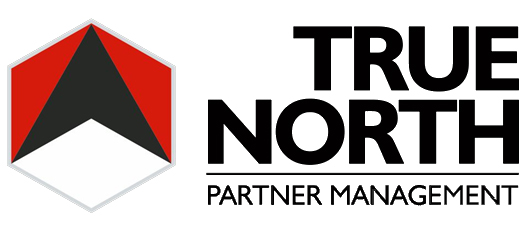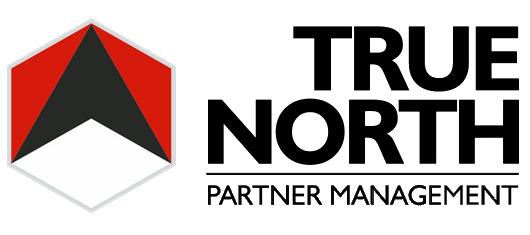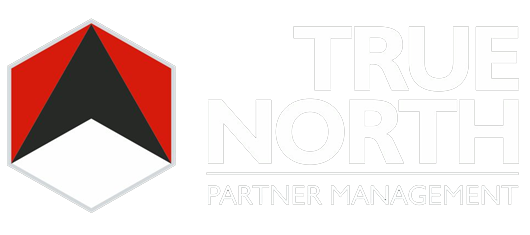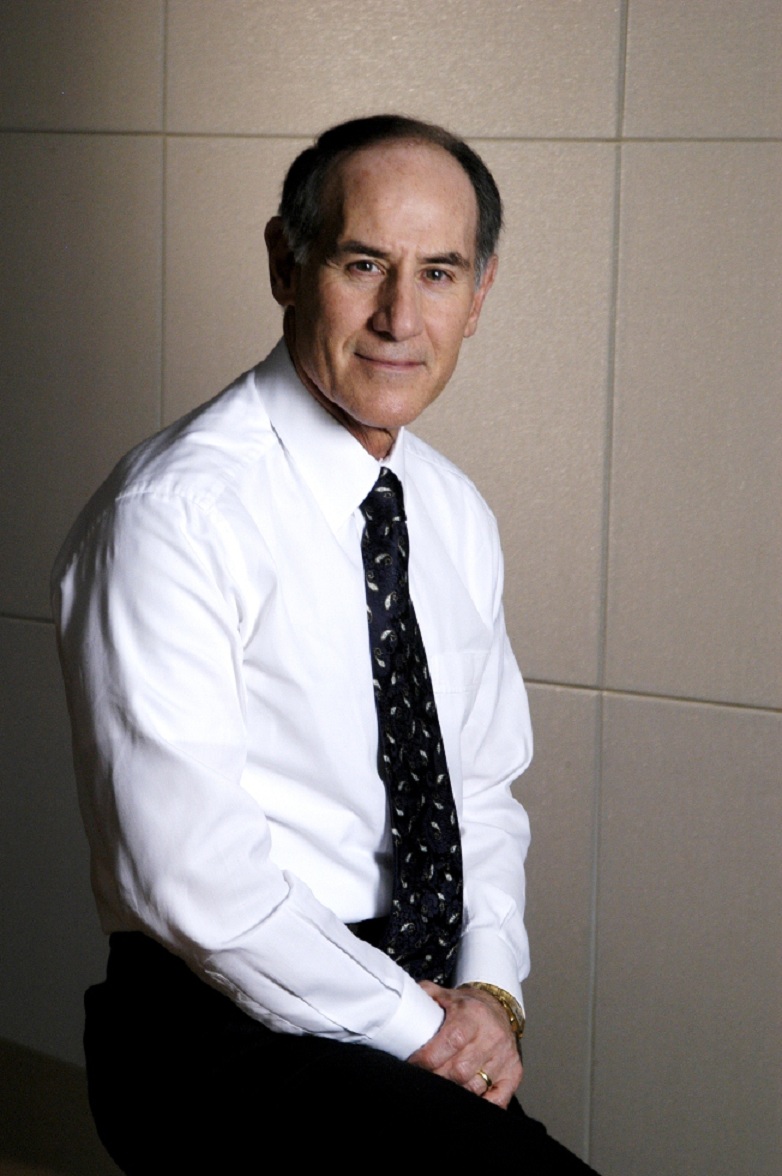The following post originally appeared on Forbes | August 11, 2015
Silicon Valley is a mindset, not a location. ~ Reid Hoffman
Young, married, without savings, and with his first child on the way, Larry Sonsini made a risky move by veering from the tried-and-true path of joining a major New York law firm after graduation. And by signing on as the first associate with a young, entrepreneurial law firm in Silicon Valley – McCloskey, Wilson & Mosher – he embraced and embodied the entrepreneurial values and spirit that would ultimately align him with some of the greatest minds, and eventually companies, in the world.
At the time, the emerging tech market was just a seedling of its modern self. And while Sonsini couldn’t be certain of its future – at the time, technology wasn’t considered the durable market that it is today – with a bit of encouragement by his mentor Richard Jennings, professor at Berkeley’s Boalt School of Law, he set out to conquer what has become the most influential industry in the world.
The eponym and his firm, Wilson Sonsini Goodrich & Rosati, have so thoroughly entrenched themselves into the emerging companies and technology industries that they’ve become a part of their fabric. In today’s piece, I speak with Sonsini about some of the fundamental lessons and attributes that he and his firm have learned and leveraged to achieve their position in such fast-paced, smart, and aggressively evolving markets. See our exchange below:
On Building A Brand
Parnell: A brand, as I’m sure you’re well aware, is a challenging thing to create. It’s a big thing. There are a lot of moving parts to it. You established one; an incredibly deep and well-recognized one. When you set out to build your firm, is this what you had in mind? If so, how did you go about building it?
Sonsini: That’s a great question. And quite frankly, what I had in mind was pretty close to what developed. I think that’s one of the fortunate things.
Perhaps being in the right place at the right time had a lot to do with it. Very early on when I was just the first formal associate, [McCloskey, Wilson & Mosher] had a very broad, eclectic, rural, smaller-town practice. And what drew me to the firm as opposed to going to New York where I thought I was going to go was that they were starting to represent very young companies; and they opened that up to me. Here is a bevy of technology entrepreneurs that are coming out of great organizations such as Hewlett Packard, Fairchild, Motorola, IBM, and they had a vision of building something. And there was no one really at the time in the firm that was solely dedicated to that. So I saw the opportunity, and very early on realized that that was something that I not only wanted to do, but that was a really great opportunity for the firm.
But to really be successful, we had to scale the business, and we had to really develop a brand. That’s when we recognized that what we were going to become was a corporate law firm focusing on representing enterprises at all stages of their growth. That would be the primary vision of the firm, and our focus would be primarily in technology. So that was the mission very early. I remember articulating that back in the early 70’s.
And so if you flash forward to today, that is the brand. And now, with 725 lawyers in 14 different offices, it’s the same model; it’s the same vision: We are the go-to law firm, particularly if you’re a growth company and you need enterprise focus at very critical disciplines, whether they be anti-trust, take-overs, or M&A. In other words, we will provide the high-end services, address the bet-the-company issue, and at the same time represent 3,000 private companies and early-stage startups.
That is our unique model because no one firm has done that quite the way we do it. There are great law firms all around, and in certain sectors they’re outstanding, but there’s no one to this scale that represents the entrepreneur all the way up to the multi-billion dollar global enterprise with our model and focus. That is also the hard part of the business model. When you’re representing a start-up or an entrepreneur, it’s a very vertical-relationship-driven type of practice. But when you represent a major public enterprise, it’s less relationship and more high quality expertise.
On Developing A Great Reputation
Parnell: Now, from a reputational standpoint – and an oftentimes brand and reputation are co-mingled. But reputation, at least from my viewpoint, is geared more towards credibility: How confident clients are that they are getting what paying for, for instance. Brand is more about relevancy and differentiation in the market. With that in mind, what are some of the elements that you think are important in a reputation?
Sonsini: Well, I think first of all it’s very clear in this business that integrity, judgment, and work ethic are very important. When a client comes to you, they’re coming to you with a problem. And that problem — particularly today with information being so ubiquitous —really is going to require a sorting out of what the real issues are, and also applying a judgment – a pragmatic judgment — to what the solutions can or should be. To do that requires a lot of experience. It requires a real dedication to your craft. And it requires candor and integrity, because shooting from the hip in today’s world, in the legal world, has no place. There’s just too much competition, too much information, too much transparency.
What I focused on very early was a work ethic where I try to make every client feel that they’re my only client; in other words, to really take a client on and take them on with a real commitment. And that requires a filtering system that requires judgment, and that requires the ability to delegate, because no one person can take anything totally on. And it requires communication and managerial skills on top of expertise and judgement. So to scale a real practice, or to scale any business firm, it’s a combination of all of those elements. I believe you must constantly re-invent yourself in this business.
On Being A Founder – A Name Partner
Parnell: It’s a unique situation to be a founding partner. What does the firm mean to you? From a vicarious viewpoint, it feels like it would be a legacy to me, almost like a child would be. I don’t want to put words into your mouth, but what does it mean to you having a law firm with your name on it?
Sonsini: It really is more than a profession, more than a job. It is really not only a legacy, but it is a vision. Next year will be my 50th year practicing law, and I’m still working 24/7. I mean, I’m full time, and doing different things, and still growing, and taking on more. And when I look at it I see, for me, it’s not only enhancing my individual practice and skills, but at the same time, more so, it’s enhancing the vision of the firm and the brand of the firm.
So I’m very much making every decision thinking of the firm. Where is it going? What can we do better? What do we represent? We’ve made, and continue to make, a very important impact on a very important industry — technology – in this country.
I look at it in that broad base. I look at it as how are we advancing the bigger picture of improving the position of this country, and the world, not only economically, but also from a business, technological, capital markets, ethics, and governance standpoint? So the vision is very broad.
And when I come to work, of course I look at my desk and I think about the challenges of my clients and how to solve their problems, but I also think about “What are we doing as a total organization to solve our problems, our vision, and our strategy?” So yes, it’s very much a family thing to me. It’s part of my life. I think it gives me energy. I think it excites me, it keeps me going, it keeps me competitive, and it’s because I think of this organization as a very living thing that can do more and can do it better.
On Succession
Parnell: With “legacy” in mind, can you talk to me about succession? You’ve been at this awhile and will, at some point, look to ease off the gas. What are your thoughts on that?
Sonsini: One of our advantages is that we are still a first generation law firm. I’ve been at the head of this firm an awful long time. So to me it’s how to keep it going and reinventing itself but staying true to its vision? And of course the succession issue is very important.
What does succession mean in today’s world? To me it really is not about finding an individual replacement. That is an archaic way of thinking. Succession is through the entire organization: Its system, its culture, and its leaders in various areas. It’s so big now, and it’s so influential now, that it can’t rest on the shoulders of just a few. So what we’ve done is we’ve become more systematized, more institutionalized. We have our management team now, which is very well defined with really sophisticated managers. They really understand the operations. Our whole training and mentoring is systematized. Our filter for clients is systematized. The way we market, the way we compensate, and our leaders across practice disciplines are the best of the best. We really look for the best anti-trust lawyer, the best M&A lawyer, litigator, and so forth, and challenge them to take those disciplines and manage them with accountability. And when you do that, my philosophy is — and I hope I’m right — that when you do that, when it’s time for me to go play more golf, I think it will be totally a non-event. At least I hope so. And I think it will be.
On Systems And Infrastructure
Parnell: That’s interesting – when you talk about succession referring to just being a single person. While a name partner, as an example, can be incredibly influential – it is difficult to determine how deep those influences go, and the various things that they can touch – a good hedge rests in systematizing things and creating infrastructure that reputational capital can be planted on, rather than simply on a single partner or a handful of influential people within the firm.
Sonsini: Exactly. If one looks at succession on an individual basis — you know, “Who’s the next chair? Who’s the next face of the firm?” — I think you’ve already got a problem. If you’re an organization that really wants to be impactful and to be considered one of the best law firms in the country, to do that your client base assumes that you have depth across your disciplines, you have leadership in every discipline, and you know the reason why it works.
It goes back to what you observed: You’ve got to have a vision, and a strategy, and a culture, and a brand. You’ve got to have those four things to have succession work. If you don’t have those things, all you’re doing is running popularity contests. And they’re dangerous. So I’ve spent a lot of time on those kinds of things. And I benefited from the fact I’ve been at it awhile and I’ve seen the challenges in this legal industry. But I’ve also been a key advisor to many great companies. And I’ve learned. When I sit in a board room or in management meetings, I’m also taking in as much as I’m giving out. For instance, I saw when Steve Jobs went back to Apple. I represented him for 30 years and I saw the challenges then, and what he did to re-change that brand. And we shared thoughts on that because by then I was giving advice on those kinds of issues. That’s the beauty of this practice: I’m learning everyday as well as passing on advice.
On Governance – The Distribution Of Power
Parnell: Moving into governance, which, governance really is, at a very basic level, the control of power; the distribution of power within a firm; the separation of power. In a law firm, in particular, attorneys are, in essence, a tool for wielding power. The law is power. And if you think of it like that, within a law firm, imagine the amount of power that resides there.
So you have incredibly smart people, incredibly logical people. Some of the best problem solvers in the world. There’s a lot of power there. With that frame in mind, can you talk to me about governance in the law firm?
Sonsini: It’s a key issue. First of all, we stress the freedom of practice and the independence of practice. That’s a very key element because power, as you’ve identified it, is in the intellectual capacity, and in the reputation with the client base. I recognized early on that you’ve got to let that power free. You have to give people the ability to practice the way they want to practice. So there’s a lot of freedom and autonomy here.
On the other hand, there’s a requirement that you, as a lawyer in this firm, buy into the brand, and the culture, and the vision. So for example, we are going to represent enterprises at all stages of their growth. If you don’t want to do that, you don’t belong here. As another example, we are going to run a firm that’s based on meritocracy, accountability, diversity, and consensus. If you’re not comfortable in that environment, you don’t belong here.
Thirdly, we’re going to run a firm that is entrepreneurial, but when it comes to the management of systems, operations, staff, personnel, HR, you’ve got to toe the line to the management policies. So although you have intellectual freedom, and freedom to deliver your service any way you want, and freedom to develop your own relationships, you must adhere to these systems and this culture. And it’s amazing the buy-in you get. And that’s why we’ve been able to scale the firm.
The big issue, the big challenge, is could you in 50 years take a firm from 4 attorneys to over 700 attorneys with consistent performance? To do that you need to have a very strong governance system. And my biggest contribution to the firm is that I constantly have my hands on the reins of the governance of the firm.
For example, we have a very decentralized philosophy that each practice, whether it be tax, mergers and acquisitions, anti-trust, securities litigation — the 30 different disciplines in this firm — we say, “Those are ‘business units.’ You people run them; you have the power to run them, the power to market them.”
So there’s a lot of decentralized power within practice disciplines. But the one common thread is the reporting to, and accountability of, the basic culture system and branding that we have. It’s a balance between individual autonomy and practice and management accountability, and it has taken time to work that out. I think it’s probably the biggest contribution I have made to the firm, internally, as I spend a lot of time thinking about that.
On Recruitment And WSGR’s Culture
Parnell: Sure. It’s a tightrope. If you can get that balance – which firms can struggle with – you are in a great spot. I find that as you look at the history of a major law firm, that balance is something that comes and goes over time…
Sonsini: It’s challenging in an organization. It’s very challenging in a personal service business because, you are right, it comes and goes because personalities come and go.
So, you change the personalities: You bring in a lateral partner who is a big brand name in the market, and you pay a lot of money for them. That personality is going to come into the organization. Now, if you don’t absorb that personality, it starts to clash. That is why these law firms get in trouble.
I think that I’ve benefited from the fact that I grew this from nothing and learned every time. The firm was built on lateral hires. I remember when I said “We have to have a litigation department. We can’t be representing great public enterprises without a litigation capability.” And had to go out and hire it, and bringing in those personalities. Some stuck and some didn’t. I mean, that can be hard.
That’s why we’ve never done a major merger or acquisition, because that just exacerbates the problem. My philosophy is to grow this firm organically, and to make inorganic moves only after really having a key strategy in place. So if we’re going to hire a lateral, let’s say a particular discipline, we spend a lot of time figuring out how this is going to fit. And I basically have been proud of the fact that with all of the laterals we consider, one of the first things I’d say is “I don’t care about your book of business. We are not buying a book. That’s irrelevant, because if you’re the right person for us, the clients will follow.” Many law firms do it differently: They buy books — “I’m going to hire this guy because he has a $10 million practice. And we need $10 more million dollars of revenue.” That’s dangerous.
On Building The Right Legal Skillset
Parnell: If you had to start over as an attorney, what would be your game plan to succeed right now? Imagine that you are a young guy just starting out. With everything you learned over the years, what would you do to make yourself valuable out there in the market, today?
Sonsini: (Laughing) I think that today, with so much information available, and so much technology – as you and I talked about – which has commoditized so much of the profession, you’re going to have to find a way of distinguishing your judgment and your value add.
It is a given that you’re going to have to be smart. It’s a given that you have to have good legal training. What you need now to do is really find out where your expertise is going to be, and what your value add is going to be. So I would be more concerned about being less of a generalist. I would be more concerned about picking a discipline such as corporate finance, or securities, or appellate litigation, and then putting myself in a position to really get with the right kind of client base where the real challenges are.
I think it’s harder today. I think you have to be very selective. You’ve got to be very disciplined, and you’ve got to be more vertical, because the world is taking the service business and it’s really expertizing it. And so when I started out I knew I wanted to be a general business lawyer. I was fortunate enough to pick a vertical — securities, mergers, those types of things. I was lucky to have done that. And I think today you need to do that even more so.
Parnell: Would you suggest younger attorneys turning down clients that were less reputable, for example, because they wouldn’t build the attorney’s portfolio as quickly?
Sonsini: No. I think that the more exposure you can get to people and clients the better you are. You’ve got to learn. And to learn you’ve got to experience different people and different things. You’ve got to see it all. You’ve got to see as much as you can. So I would take more risk with the viewpoint that I’m going to get exposure. I come from the school where I think failure is not a stigma; it’s an experience. And I think I’d be a little more entrepreneurial on that aspect of it.
On The Future Of The Market
Parnell: The market itself — this is kind of a big question — but where do you see it going? Going out ten years from now, at a 20,000 foot view, what do you think the market is going to look like?
Sonsini: I think that the role of the law firm, particularly in this country, will continue to be critically important because the world is becoming more complex. And the world is embarking upon new types of regulation that are bringing new issues to the forefront. And so the role of law and social justice is going to be a key factor, and I see the future of the law being just as important as it has historically been.
I also see law firms having to be better businesses. They have to be run as a business, which means you really need a strategy, you need a culture, you need a brand, and you need a lot of discipline. If people don’t have that, I think it’s going to be very difficult to be sustainable.
I think the economics of the legal profession are changing dramatically. The concept of the hourly fee is going to continue to diminish in importance. And I think new compensation systems are going to have to be understood and put in place.
I think the tension between individual autonomy and professionalism versus a business is going to be a constant challenge. And I think firms are going to have to develop governance structures that are more sophisticated than they’ve ever thought about.
I think that there’s a role for boutique firms, but the premium is going to be put upon expertise and quality, because technology is going to continue to commoditize the industry. Technology is making knowledge ubiquitous. We know that. Hell, when I was building this firm 40 years ago I used to worry about how big a library I needed. Now it’s irrelevant. There’s no library anymore. You don’t need it. It’s on every desktop.
So, I think that those are the challenges that are coming. They’re here. And it’s going to be interesting.
Email: [email protected] Twitter: @davidjparnell
Books: The Failing Law Firm: Symptoms And Remedies; In-House: A Lawyer’s Guide To Getting A Corporate Legal Position



